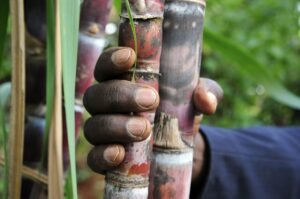By Rootooba Correspondent, 15 July 2020
The Kenya government’s sweeping reforms in the coffee sector will now see farmers get information on the price of their coffee on the market, thereby reducing wastage occasioned by processing and milling.
In addition, farmers will access the Ksh 3 billion cherry revolving fund through the new Kenya Planters Cooperative Union (KPCU) that will lead the coffee sub-sector reforms.
Agriculture and Fisheries Cabinet Secretary Peter Munya has also confirmed plans to review the Capital Markets Authority (CMA) Coffee Exchange regulations 2020 in the next three weeks which he said will be subjected to public participation.
But the coffee auction did not take-off this week at the Nairobi Coffee Exchange (NCE) as proper transition logistics were not implemented. Munya regretted.
Samples of 12,000 bags of clean coffee that had been received from marketing agents were not offered for sale on July 7, 2020, a situation that has elicited sharp reactions from value chain players.
The new KPCU started operations in a late coffee season of 2019/202 and between January and May this year. So far, the Co-operative has received 9,341 bags of parchment coffee, an equivalent of 434 tonnes.
The Union has also partnered with the Kenya National Trading Corporation (KNTC) to supply coffee fertilizer to farmers at the cost of Ksh 2,000, and at the same time, the co-operative is currently processing applications for cash advances from farmers that will be completed in the near future.
Even as CS Munya announced the reforms, a farmer’s lobby group –Kenya Coffee Producers Association (KCPA) has called for the suspension of the rules gazetted in April until all the structures and systems are put in place, including amending the Crops Act, 2013.
According to Peter Gikonyo, KCPA Chairman said that the new coffee rules were unconstitutional with no clear direction on how some systems to process coffee, such as the Direct Settlement System (DSS), will be able to protect farmer’s proceeds if the marketing agency does not remit the growers proceeds.
“We want to ask the government not only to suspend the coffee exchange regulations until all structures and systems have been put in place but also to consult farmers to ensure regulations are aligned to the needs of the producers.” Gikonyo said.
Bearing in mind that 80 percent of Kenyan coffee is destined for the International markets, Gikonyo said if not supplied with coffee when needed, many buyers of Kenyan coffee might turn to alternative sources.
In 2016, President Uhuru Kenyatta appointed a task force to look into the issues affecting the coffee industry. Since then, a key output of the task force was the development of crops (Coffee) general regulations 2019 and Capital Markets (coffee exchange) regulations 2020, which were gazetted in July 2019 and April 2020 respectively, repealing the Coffee general regulations of 2002.







